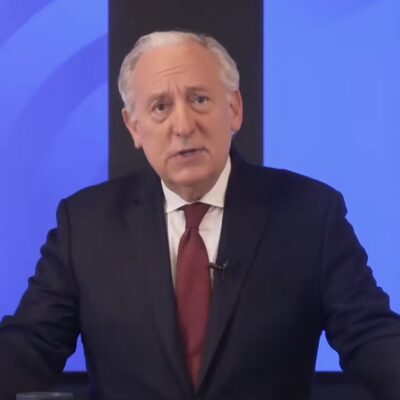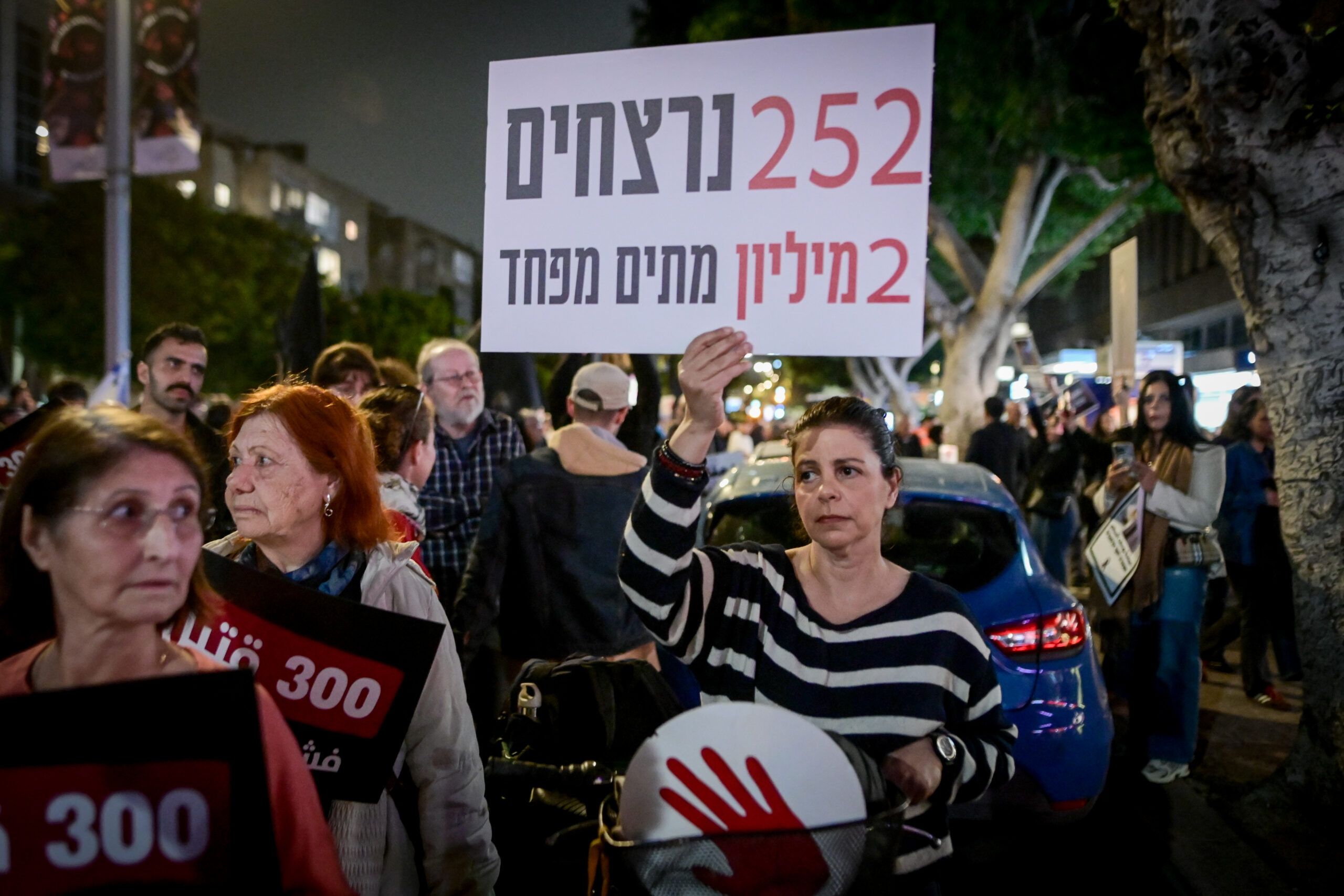Your Daily Phil: Living hostages return to their families after 2 years in captivity
Good Monday morning!
In today’s edition of Your Daily Phil, we report on what comes next for the 20 hostages released from Hamas captivity today and on the Jewish communal reactions to their return. We examine how Jewish volunteer security programs are getting participants more involved in the wider community, and interview historian Pamela Nadell about her new book on American antisemitism. We feature a preview of essays from the latest edition of the Center for Jewish Peoplehood Education’s Peoplehood Papers series, with pieces by Elan Ezrachi, Alex Pomson, Zohar Raviv, Shuki Taylor and eJewishPhilanthropy Managing Editor Judah Ari Gross; plus, Abby Levine and Rachel Gottfried-Clancy reimagine how we think about and approach workplace conflict. Also in this issue: Rabbi Jonathan Muskat, Mark Rowan and Miriam Adelson.
Ed’s note: In celebration of Shemini Atzeret and Simchat Torah, the next edition of Your Daily Phil will be back in your inboxes on Thursday, Oct. 16. Chag sameach!
What We’re Watching
We’re following today’s events as they unfold in Israel, following the release this morning of the remaining living hostages and President Donald Trump’s brief visit to the country.
UJA-Federation of New York, the Hostages and Missing Family Forum and local elected officials will host a briefing on the hostage release this afternoon in New York City.
What You Should Know
A QUICK WORD WITH EJP’S JUDAH ARI GROSS
They watched on jumbotrons in Hostages Square in Tel Aviv, at the site of the Nova festival massacre and at mass gathering points across the country. They watched on television at home. They watched on phone screens on the bus and on the sidewalk. In synagogues across the country, after saying, “Give thanks unto the Lord, for God is good,” they recited the prayer for the hostages, pleading for it to be for the last time.
For Israelis and Jews around the world — and for their supporters — the release of the hostages was the only focus of the day, coming on the eve of the Simchat Torah holiday, on the eve of the second anniversary by the Hebrew calendar of the Oct. 7 terror attacks, when more than 250 people, living and dead, were kidnapped by terrorists.
Shortly after 9 a.m. Israel time, the first seven of the remaining 48 hostages — 20 living, 28 slain — were handed over to Israeli forces in Gaza by the Red Cross. At roughly 9:30, they crossed the border back into Israel, en route to the Israel Defense Forces’ Reim base, just outside the Strip, where they met their families and received a more thorough medical check. From there, they traveled to hospitals in central Israel that had prepared special recovery wards for them, where they will stay until cleared to leave. The remaining 13 living hostages were handed over to the Red Cross shortly after 10 a.m. and made the same journey. (The remains of slain hostages are scheduled to start to be handed over today, though the process is expected to take longer and may not be completed in the coming weeks.)
“The only thing that I want to do is to hug him, to smell him and to tell him that his nightmare is over, that he’s now safe and he’s with us. This is the only thing we’re going to do… And after that, with his own rhythm, we’ll see what Guy’s condition is and we’ll get on our way,” Ilan Dalal, whose son Guy Gilboa-Dalal was taken captive from the Nova festival, told reporters on Sunday night.
Simha Kameri, a social worker who has been assisting hostage families, told eJewishPhilanthropy that she knows that many people want to help the returning captives, to make sure that they are provided for and get the support that they need. But in the immediate term, the most important thing for the returning hostages is getting time in the embrace of their families and closest friends, as well as the medical assessments and care. “They want to be with their loved ones, whom they haven’t seen in two years. They need their privacy. That’s what they need for the first 48 hours. Everyone is on a ‘high’ right now, but let’s see how they are after their initial medical checks. Only then will we be able to identify their needs,” she said.
The returning hostages will likely require a good deal of support — mental, physical, social and financial — for years to come, though each person will be different.
In the short term, Kameri said that the families of hostages — both immediate relatives and extended families — can use support. For the past two years, the families have been fighting tirelessly to secure their loved ones’ release from captivity, which has taken a tremendous toll on many of them, with some parents of hostages getting divorced and others experiencing illnesses and other health issues.
Once the freed hostages have had a chance to recover physically and spend time with their families, then social workers and other mental health professionals can begin assessing their other needs, Kameri said. “Talk to me in a week, and I’ll know better,” she said. “Right now, we’re all just so terribly excited to see them.”
COMMUNAL REACTIONS
Jewish leaders cheer return of 20 hostages after 738 days in captivity

Jewish leaders rejoiced as 20 Israeli hostages — the last known living hostages — were freed from Hamas captivity on Monday under a U.S.-brokered ceasefire agreement between Israel and the terrorist group, just over two years since they and some 230 others, living and dead, were kidnapped from southern Israel during the Oct. 7 attacks, reports eJewishPhilanthropy’s Judah Ari Gross. “Through 18 major Jewish holidays and 105 Shabbat dinners, Jewish families in Israel and around the world had empty chairs at our tables, yellow ribbons on our lapels and fractures in our hearts,” the Jewish Federations of North America wrote in a statement.
Not over yet: “Today, Jews everywhere are finally exhaling. The last living hostages are home in Israel. As a former trauma counselor, I know that when safety returns, it brings a kind of relief we didn’t know we needed, a lightness we’d forgotten was possible. But we can’t go back to who we were before Oct. 7,” said Sheila Katz, the outgoing CEO of the National Council of Jewish Women. Philanthropist and World Jewish Congress President Ronald Lauder noted that while the 20 living hostages were freed, 28 slain hostages remain in captivity and it is not yet clear when they will all be released. “This is a time to rejoice, but we remain incomplete as we await the return of the 28 hostages who perished during their cruel captivity,” Lauder said.
SAFETY FIRST
Jewish self-protection initiative offers entry into wider community, volunteers say

After the Oct. 7 massacres, Ben knew he needed to do something. While other American Jews “Surged” into temples, attending services wasn’t an option for him, who had long since stopped being connected to religion. But Ben always had an interest in security and had trained in multiple forms of martial arts. Less than three weeks after the Hamas attacks, he Googled “Jewish volunteer security” and came upon the website of the Community Security Service, a nonprofit that trains Jews to protect their own communities. “I applied immediately,” said Ben, who asked to be identified by his first name only for personal safety reasons. He is one of over 200 active members of CSS’s young professional team, ROAM, which stands for “respond, organize, act, maintain,” reports eJewishPhilanthropy’s Jay Deitcher.
Ready to ROAM: Originally launched at the beginning of the COVID-19 pandemic, the ROAM program has gone from protecting 20 synagogues to guarding over a hundred yearly. ROAM volunteers, aged between 20 and 35, train for three months and serve, on average, for three to five years. “That’s our goal,” said Richard Priem, the CEO of Community Security Service. “Some of them move on to become leaders themselves, and really, our vision is a life cycle of Jewish service.” Volunteers are exposed to different sects of Judaism and ways to connect to the faith and culture. It “becomes a pathway to the Jewish community,” Priem said. Last year, two volunteers even got married after meeting through the program.
BOOKSHELF
In new book, Jewish historian argues modern antisemitism akin to 1950s bigotry
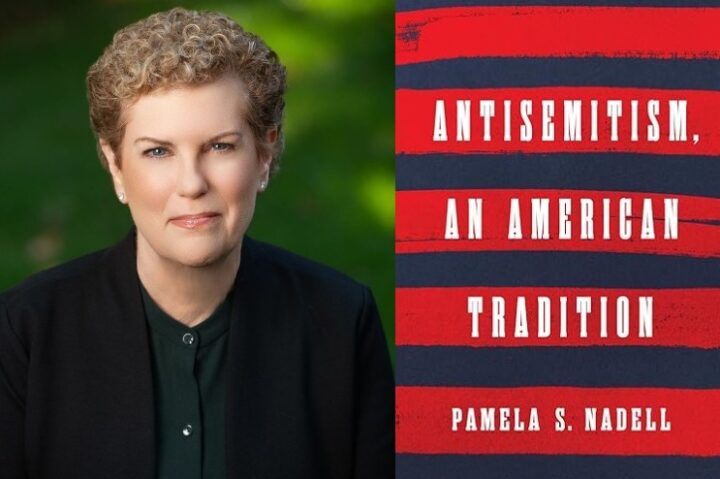
Historian Pamela Nadell is very familiar with the rituals of publishing a book, as she has written nine of them: Secure a release date, present at academic conferences, maybe headline a handful of general-public events. Although she is at the forefront of her field at American University — chair in Women’s and Gender History, director of the Jewish studies program and former president of the American Jewish Historical Society — Nadell knows that success in academia does not often translate to strong book sales. Things appear to be different for her latest book, Antisemitism: An American Tradition, reports Gabby Deutch for eJewishPhilanthropy’s sister publication Jewish Insider.
Pertinent timing: Nadell began to understand how much interest a book on antisemitism would generate when her publisher assigned a full-time publicist to promote the book, which will be published on Oct. 14. Nadell is booked at speaking engagements across the country into 2027, starting with an event at the Washington bookstore Politics and Prose next week. The book that she began researching six years ago will now appear on bookshelves at a time when antisemitism has reached record levels since the Anti-Defamation League began tracking data in 1979. “I had hoped, frankly, that the subject would be seen as a historic subject by the time [the book] came out into the world,” Nadell told JI in a recent interview. “And that’s absolutely not the case.”
Read the full story here and sign up for Jewish Insider’s Daily Kickoff here.
PEOPLEHOOD PAPERS
Zionism 2025: Reinterpreting vision, mission and boundaries

In collaboration with the Center for Jewish Peoplehood Education, eJewishPhilanthropy is sharing a sampling of some the essays featured in the latest edition of CJPE’s Peoplehood Papers series, “Zionism 2025: Reinterpreting Vision, Mission and Boundaries,” which is being published today:
What normality looks like: “Not only can emigration out of Israel not be stopped, but it can be viewed as an integral aspect of Zionism’s success: normalization. … Zionist establishments as well as Jewish communal organizations in the Diaspora should invest and work toward strengthening Israeli communities and enrich their ethnic and religious life.” — Elan Ezrachi, educator and scholar
American Jewish philanthropy and Israel: “American Jewry and particularly its donor class is among the most innovative, motivated and successful groups on the planet. Ben-Gurion hoped U.S. Jews would bring those skills to Israel through aliyah, something that has never happened on a large scale. But they can still offer them to the state, which needs them now as much as it did then. ” — Judah Ari Gross, eJewishPhilanthropy
Back to basics: “The task today is not to reinvent Zionism as a consumer product for niche markets of Jewish identity (the Jewish equivalent of developing the latest iPhone model), but to recover and adapt its core commitments in ways that speak to a world skeptical of borders yet hungry for belonging.” — Alex Pomson, Rosov Consulting
A bigger narrative: “Focusing only on modern, reactive Zionism is precisely what anti-Israel propaganda thrives upon. Reducing Zionism to a late 19th-century narrative, disconnected from millennia of Jewish longing and presence, makes it easy to mischaracterize it as opportunistic and illegitimate. Reclaiming Zionism’s full historical arc is essential to reaffirm it as a natural, authentic expression of Jewish agency.” — Zohar Raviv, Taglit-Birthright Israel
To sustain is the challenge: “Founding is not a ceremonial instant but an ongoing discipline that turns the energy of a beginning into durable life. … When a people understand themselves as authors, they accept the obligations of authorship; when they see themselves as recipients, they are tempted to treat the framework as disposable when it disappoints. Zionism today sits at this juncture.” — Shuki Taylor, M²: The Institute for Experiential Jewish Education
THE GOOD FIGHT
Transforming workplace conflict: 7 lessons from JSJR’s pilot program

“Avoiding conflict is neither sustainable nor productive,” write Abby Levine and Rachel Gottfried-Clancy of the Jewish Social Justice Roundtable in an opinion piece for eJewishPhilanthropy. “Instead, we think generative conflict should be seen as a skill that individuals and organizations can learn and apply to navigate differences, welcome diversity of opinions and work together more effectively.”
A cultural reset: “JSJR launched a two-year pilot program to build conflict management skills among the staff of over 50 nonprofit organizations, informed by interpersonal dialogue research, best practices in organizational culture and accessible pedagogy. This pilot was part of a larger initiative to reshape organizational culture by equipping teams with the tools to navigate disagreements constructively. … While our work is by no means finished, the results have been overwhelmingly positive: employees report feeling greater agency when addressing workplace tensions, organizations feel more prepared to manage conflict and staff now share a common language when discussing issues.”
Worthy Reads
A Time for War, a Time for Peace: In The Times of Israel, Rabbi Jonathan Muskat reflects on the ambiguous meaning of Ecclesiastes, which was read on Saturday, and what it teaches us about the current mixed moment of joy at the release of the hostages alongside concerns about the price that was paid for it. “So many contradictions. Joy and dread. Relief and worry. Triumph and uncertainty. Nothing is neat. Nothing is clean. Hevel havalim — everything is fragile, fleeting, mixed. … That’s also the message of the sukkah. The sukkah is fragile, temporary, incomplete. Yet in that very impermanence, we discover joy. We learn that holiness doesn’t come from permanence — from stone walls or perfect answers — but from presence. From being fully alive in this moment — under this sky, surrounded by the fragility of life.” [TOI]
Hear Me Out: In The New York Times, Mark Rowan offers his take on the Trump administration’s “Compact for Academic Excellence in Higher Education.” “For more than 20 years, government mandates on a host of issues — including diversity, discrimination and student discipline — have been welcomed on college campuses because they fit within the prevailing partisan ethos. But this government mandate, intended to promote excellence in core academic pursuits and to protect free speech, is being met with prophecies of doom. As someone who played a part in the compact’s initial formulation, working alongside an administration working group, I would like to offer what insight I can into the motivation and need for the compact and to address its detractors.” [NYTimes]
More Resources, Please: In an opinion piece for the Jewish Telegraphic Agency, college students Ari Kohn and Maya Zimmerman share their concerns about the polarized atmosphere on campuses today as well as their confidence in the potential for change. “What’s missing on campuses across the country are sustained spaces where students learn to hold disagreement within a community. … College campuses have the potential to, once again, become spaces where students can cultivate meaningful relationships before diving into debate. This is especially true of Jewish spaces on campus which are in desperate need of a relationship reset. More resources should be given to trusted campus professionals and peer leaders who can serve as relationship-builders on campus and are best positioned to foster pluralism in these environments.” [JTA]
Lessons from a Kidnapping: The Atlantic published an excerpt from Rabbi Angela Buchdahl’s upcoming memoir detailing her conversations with a gunman who held a Texas synagogue hostage in January 2022. “I tried to assure him that I had called all of the right people, that we were taking concrete steps, and that he should not do anything rash. I desperately wanted to buy more time, so I confided that I didn’t have as much influence as he thought. ‘Nonsense,’ he countered. ‘Every Jew has influence, and you definitely do.’ Every Jew has influence. Assertions about Jews running the world have long been a hallmark of anti-Semitic conspiracy theories. Now this ugly trope was being hurled at me while four lives hung in the balance.” [TheAtlantic]
Word on the Street
In The Times of Israel, Eric Fingerhut, president and CEO of the Jewish Federations of North America, and Gary Torgow, JFNA board chair, share a prayer and an agenda for what comes next for the Jewish People in Israel and the Diaspora…
During his speech in the Knesset today, President Donald Trump singled out Israeli-born GOP donor and philanthropist Miriam Adelson for praise, indicating that she and her late husband, Sheldon Adelson, were the reason he moved the U.S. Embassy to Jerusalem in 2018. He also joked that she may love Israel more than America and noted that she and her husband “had more trips to the White House than anybody”…
Miriam Adelson, one of the main forces pushing Trump to take on the hostage issue, attended Trump’s speech wearing a dress festooned with yellow ribbons that symbolized the hostage cause…
The New York Times looks at the effort by Patrick Dumont, Adelson’s son-in-law, to restore the relationship between the NBA and China, two years after relations soured following NBA executives’ pro-democracy social media posts…
Salesforce CEO Marc Benioff has called for President Donald Trump to deploy national guard troops to San Francisco, marking a political shift for the startup co-founder and philanthropist…
CNN analyzes the Trump administration’s efforts to block some Muslim groups from receiving FEMA funding…
World Central Kitchen prepared food for the families and supporters of freed Israeli hostages…
Leaked Whatsapp messages show Charlie Kirk complaining about “Jewish donors” who pulled their support for him because of his refusal to cut ties with commentator Tucker Carlson, who has increasingly spread and platformed antisemitic conspiracy theories…
Conservative commentator Ben Shapiro raised concerns about the rise of “a conspiratorial right,” noting that social media users “get a lot more likes and clicks if you are promoting an anti-Israel, anti-Jewish agenda than if you are doing the opposite”…
The Jewish Telegraphic Agency spotlights Muse Brooklyn, an arts event space started by Mizrachi Jewish women….
Sixty years after his execution in 1965, the remains of Israeli spy Eli Cohen will reportedly be transferred to Israel from Syria soon…
The Telegraph interviews Jewish arts philanthropist, Dame Vivien Duffield…
The U.K. government directed universities in the country to crack down on campus antisemitism, with Education Minister Bridget Phillipson saying university administrators “have my full backing to use their powers” in “ridding their campuses of hate”…
The Times of Israel analyzes how Jewish students are responding to spiking antisemitism at universities across Europe…
Israeli American hockey player Zeev Buium scored his first NHL goal on Saturday against the Columbus Blue Jackets; Buium, a defenseman for the Minnesota Wild, is believed to be the first Israeli hockey player to ever score a goal in the NHL…
California Gov. Gavin Newsom signed a bill to combat antisemitism in the state’s K-12 public schools on the second anniversary of Hamas’ Oct. 7 attacks, which kicked off a wave of antisemitic incidents across the country…
Major Gifts
Marc Benioff announced a $100 million donation to UCSF Benioff Children’s Hospital Oakland, and a $36 million pledge for artificial intelligence education in San Francisco public schools…
The Sy Syms Foundation awarded a $1 million grant to The Forward for an endowment to support early-career Jewish journalists…
Transitions
Nina Ofner Bokan, vice president of the World Jewish Congress, has been named an advisor to Andrija Mandi, Montenegro’s speaker of the parliament…
Pic of the Day
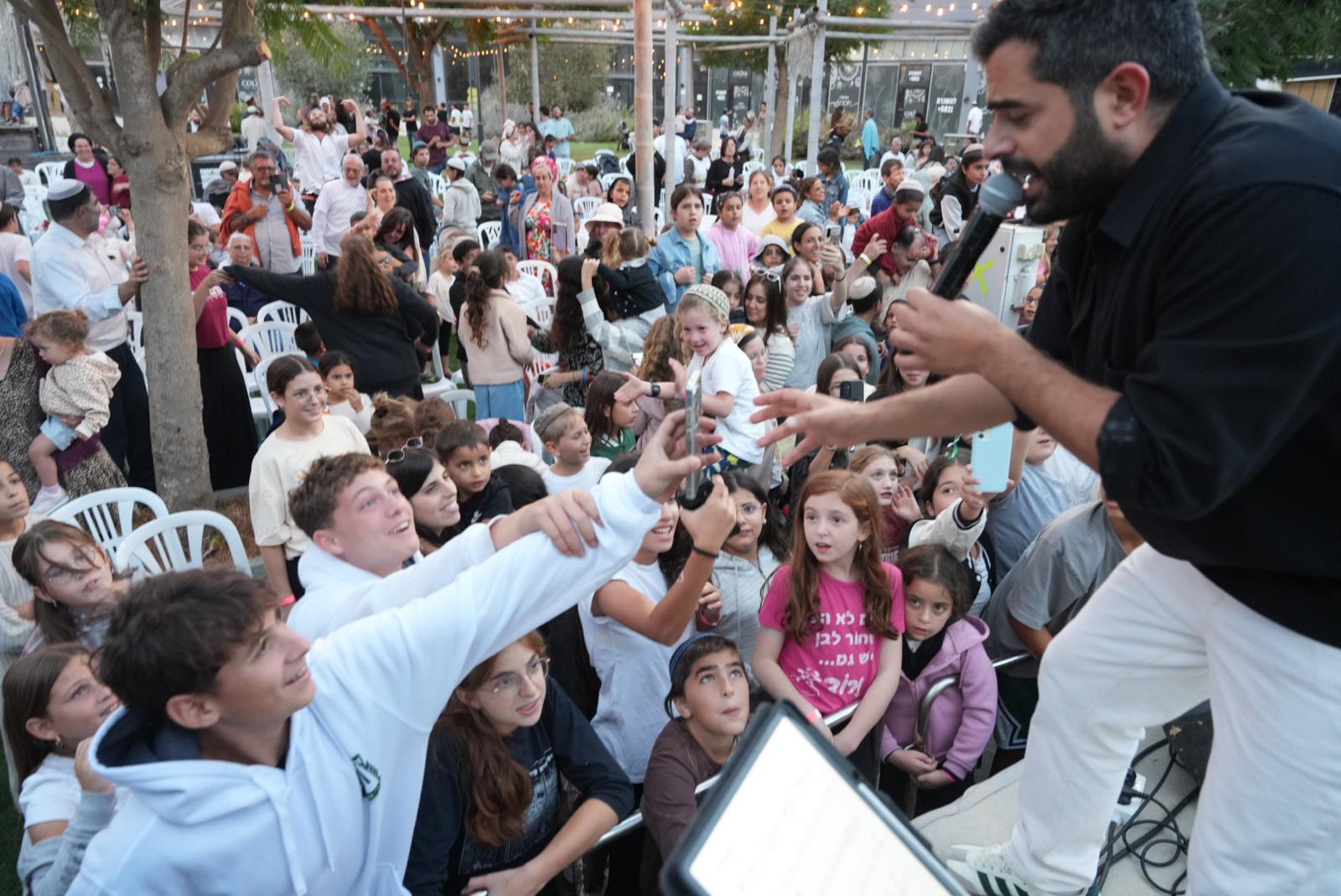
Israeli singer Moshe Korsia performs for some 2,000 Israelis who have lost loved ones in war or terror attacks on Friday at a Shabbaton outside Jerusalem that was organized by the Israeli nonprofit OneFamily.
“This is a very complex day,” Hagit and Uzi Rosenzweig, the parents of fallen soldier Eitan Rosenzweig, said after the weekend. “We are very happy that the hostages are returning, that families are being reunited… but our son isn’t ever coming home. This is the right place for us to be, among others who understand exactly what we’re going through.”
Birthdays
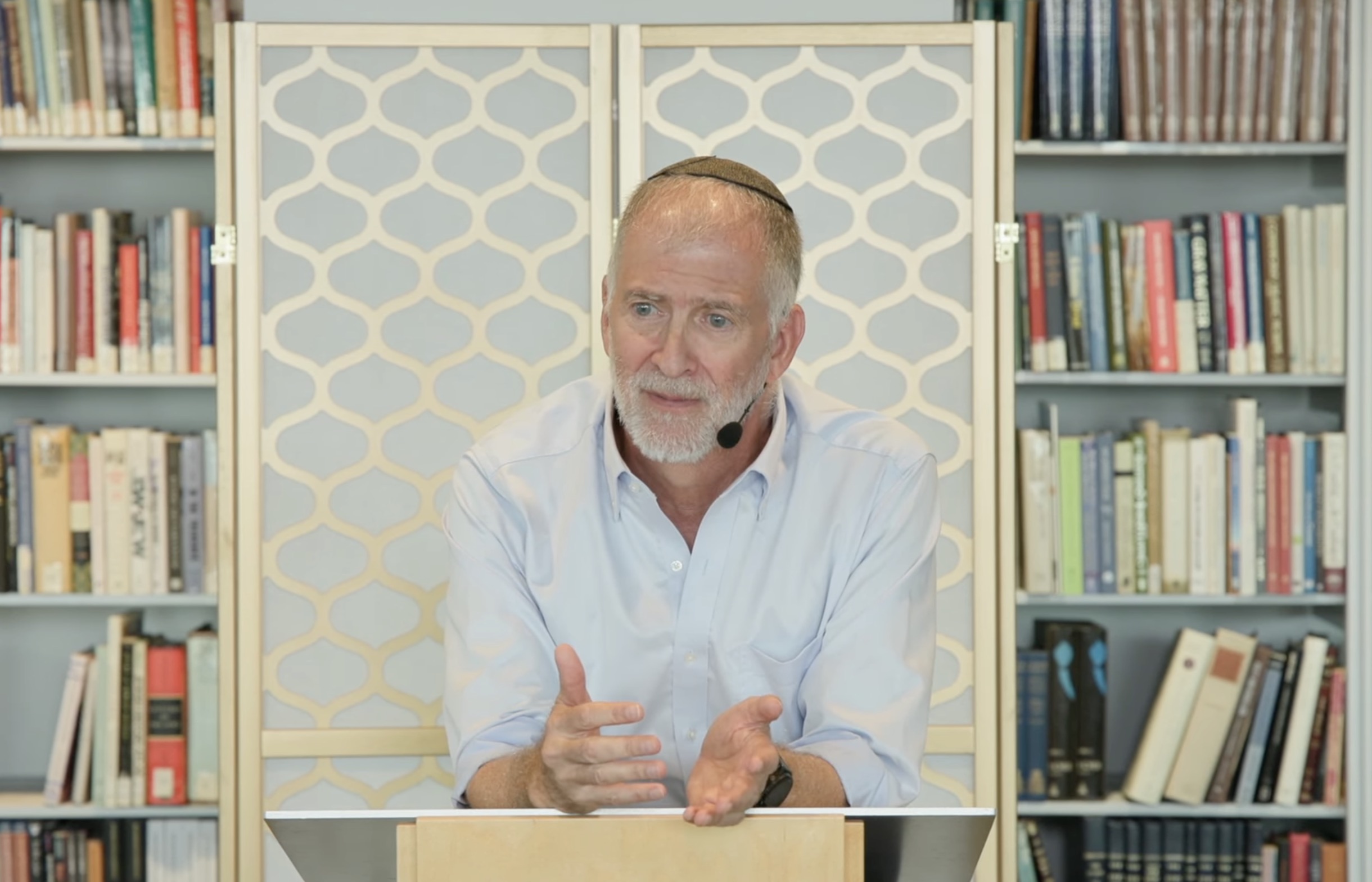
President of the Shalom Hartman Institute in Jerusalem, Rabbi Donniel Hartman turns 67…
Former deputy assistant secretary at the USDA, he retired in 2024 as an attorney working on organic food law, Richard D. Siegel turns 86… Musician, singer, songwriter, best known for his lead role in the Simon & Garfunkel duo, Paul Simon turns 84… Past chair of the Anti-Defamation League, Esta Gordon Epstein… Founder of PublicAffairs Books, an imprint of Perseus Books at Hachette Book Group, Peter L.W. Osnos turns 82… Author of 12 cookbooks, Mollie Katzen turns 75… Former White House press secretary under President George W. Bush, now a media consultant and Fox News contributor, Ari Fleischer turns 65… Partner at FGS Global until 2024, Jack Krumholtz… Former Associated Press bureau chief for Israel and the Palestinian territories, now a home builder in the Indian state of Goa, Steven Gutkin… Second gentleman of the United States in the Biden-Harris administration, Douglas Emhoff turns 61… Co-chairman of Disney Entertainment where she is responsible for television and streaming, Dana Freedman Walden turns 61… Richard Lamke… Attorney general for England and Wales for parts of 2021 and 2022, he was a member of the U.K. Parliament for 14 years until 2024, Michael Ellis turns 58… Emmy Award-winning film director, producer and screenwriter, Amy J. Berg turns 55… Award-winning actor, comedian and screenwriter, Sacha Baron Cohen turns 54… Israeli fashion model, Shiraz Tal turns 51… Offensive lineman in the NFL for ten seasons (Broncos, Redskins, Bears and Browns), now the COO of Raleigh-based VetOvation, Leonard Lebrecht Friedman turns 49… Adjunct professor of Jewish studies at Ohio University and director of member engagement at the Academic Engagement Network, Sarah Livingston… Emily Gould… Jerusalem bureau chief for CNN, Oren Liebermann turns 43… Land-use attorney at Seattle-based firm of Hillis Clark Martin & Peterson, Joshua E. Friedmann… Political reporter for NBC News, Rebecca Shabad… Film director, producer and screenwriter, Jordan David “J.D.” Lifshitz turns 33…


 Add EJP on Google
Add EJP on Google